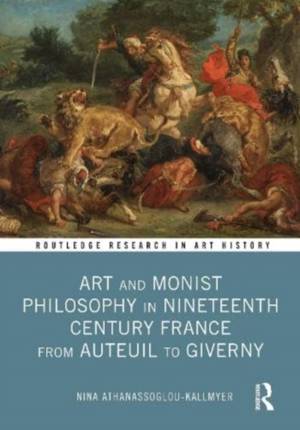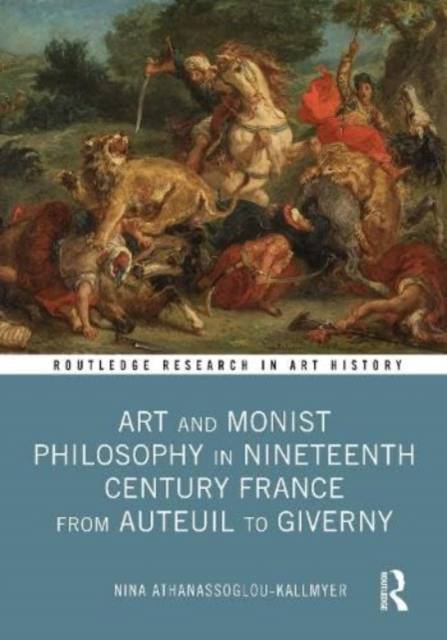
- Retrait gratuit dans votre magasin Club
- 7.000.000 titres dans notre catalogue
- Payer en toute sécurité
- Toujours un magasin près de chez vous
- Retrait gratuit dans votre magasin Club
- 7.000.0000 titres dans notre catalogue
- Payer en toute sécurité
- Toujours un magasin près de chez vous
Art and Monist Philosophy in Nineteenth Century France from Auteuil to Giverny
Nina Athanassoglou-KallmyerDescription
This is a study of the relation between the fine arts and philosophy in France, from the aftermath of the 1789 revolution to the end of the nineteenth century, when a philosophy of being called "monism" - the concept of a unity of matter and spirit - emerged and became increasingly popular among intellectuals, artists and scientists.
Nina Athanassoglou-Kallmyer traces the evolution and impact of this monist thought and its various permutations as a transformative force on certain aspects of French art and culture - from Romanticism to Impressionism - and as a theoretical backdrop that paved the way to as yet unexplored aspects of a modernist aesthetic. Chapters concentrate on three major artists, Théodore Géricault (1791-1824), Eugène Delacroix (1798-1863) and Claude Monet (1840-1926), and their particular approach to and interpretation of this unitarian concept.
The book will be of interest to scholars working in art history, philosophy and cultural history.
Spécifications
Parties prenantes
- Auteur(s) :
- Editeur:
Contenu
- Nombre de pages :
- 182
- Langue:
- Anglais
- Collection :
Caractéristiques
- EAN:
- 9781032465388
- Date de parution :
- 25-09-23
- Format:
- Livre relié
- Format numérique:
- Genaaid
- Dimensions :
- 175 mm x 246 mm
- Poids :
- 509 g

Les avis
Nous publions uniquement les avis qui respectent les conditions requises. Consultez nos conditions pour les avis.






